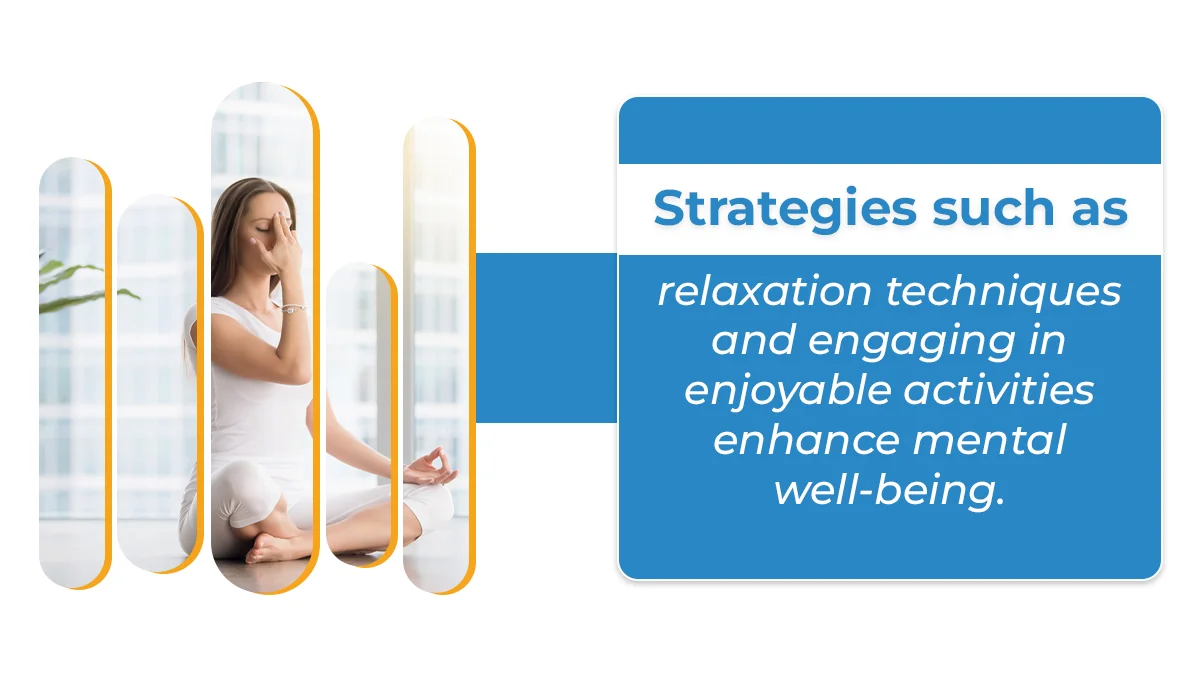
Lyrica With Suboxone: Risks And Safe Practices
The Recovery Team-Newton explores whether taking Lyrica with Suboxone is safe. Explore potential risks and guidelines

In our fast-paced lives, prioritizing mental wellness is essential. Just as we care for our bodies, nurturing our minds is necessary for overall well-being. From handling stress to fostering strong relationships, our mental health impacts every aspect of our lives.
This blog delves into practical strategies and insights to cultivate a resilient and flourishing mind. By implementing self-care routines and seeking support when needed, you can achieve the mental strength needed for a fulfilling life.
Mental wellness directly correlates with individuals ‘ physical and emotional health. Here is what you will learn:
The Recovery Team-Newton offers comprehensive support for mental wellness to navigate life’s challenges effectively. Call at (508) 9782772 for further guidance.
Mental wellness is important because it affects how we feel, think, and act daily. Just like we care for our bodies, we need to look after our minds. Mental health helps us handle stress, make better decisions, and build strong relationships.
When prioritizing mental wellness, we can cope better with challenges and enjoy life more. It’s like giving ourselves a solid foundation to face whatever comes our way. Plus, taking care of our mental health early can prevent more significant problems later.
Improving mental wellness involves adopting various strategies that address different aspects of one’s life. Consistency and commitment to these strategies can significantly improve your overall well-being.
Here are some of those effective options:
Journaling thoughts and feelings can significantly enhance mental wellness. It provides a safe space to express emotions, reduce stress, and gain clarity. Regular journaling promotes better mental and physical health by helping people identify patterns, triggers, and coping mechanisms. It’s a valuable tool for self-reflection and understanding, fostering resilience and emotional balance amidst life’s challenges.
Try simple activities like deep breathing, meditation, or walking to relax and reduce stress. Engaging in hobbies you enjoy, spending time with friends, and helping others can boost mood and alleviate tension. Focus on positive things and remember to take breaks when needed. Your friends can be a great support system during stressful times.
Improving mental wellness often requires taking breaks. Spend quality time with family members, even just a few minutes daily. Limit social media usage to avoid overwhelming your mind. Practice mindfulness by focusing on the present moment. Taking breaks throughout the day can recharge your energy and promote a healthier mindset.
Engaging in activities you enjoy is vital for good mental health. Whether physical activities like sports or hobbies like painting, find what brings you joy. Balancing work with leisure helps reduce stress. Consider learning new skills to keep your mind stimulated. Remember that seeking professional help and maintaining a balanced diet are always options.
Managing stress is essential for mental well-being. Prioritize self-care by getting enough sleep and incorporating regular exercise into your routine. Practice relaxation techniques to alleviate anxiety and depression symptoms. Remember to take breaks and engage in activities you enjoy. Seeking support from friends, family, or a therapist can help you cope with stress effectively.
Focusing on the present can benefit emotional health, especially for those with mental illnesses. Engage in new hobbies to cultivate self-confidence and self-esteem. Practice mindfulness to manage long-term stress. By staying present, you can appreciate small victories and build resilience against challenges, fostering overall well-being and mental strength.
Creating a self-care kit is essential, especially for managing mental illnesses. Include items related to new hobbies to boost self-confidence and self-esteem. Add long-term stress relievers like journals or stress balls. Prioritize emotional health by including soothing items like scented candles or comforting books. Personalize it to cater to your unique needs and preferences.
Joining a class or group offers social connections, benefiting both body and mind. It’s an opportunity to meet new people and share experiences. For those facing emotional problems, group settings provide support and understanding. Engaging in activities fosters positive experiences, promoting better mental health through shared interests and camaraderie.
Engage in something creative, like painting or writing. Expressing yourself through creative outlets can positively impact your mood and mindset. Consider exploring new hobbies, such as making videos, to stimulate your senses and provide sensory input. Cultivating creative habits can become a healthy way to manage stress and promote overall well-being.
Spending time in nature is rejuvenating and beneficial for mental health. Take walks in parks, hike trails, or sit outdoors. Nature provides a calming environment, reducing stress and improving mood. It offers a break from the hustle of daily life, allowing for reflection and appreciation of the natural world’s beauty.
Connecting with others is vital for emotional health, especially during times of stress or when facing problems. Hold hands or engage in meaningful conversations to activate the nervous system’s calming response. Maintain a healthy diet together to nourish both body and mind. Utilize communication tools to express emotions and build stronger connections.
Caring for your physical health is a beautiful way to support mental well-being. Regular exercise and a balanced diet can help manage mental health conditions. Trying new tasks keeps the mind active and engaged. Seek healthcare when needed and engage in community work to foster good relationships, contributing positively to overall health.
Improving your sleep is crucial for overall well-being. Establish a consistent bedtime routine and create a comfortable sleep environment. Limit screen time before bed and avoid caffeine in the evenings. Relaxation techniques like deep breathing or gentle stretching can help prepare your body and mind for restful sleep, promoting better health and productivity.
Are you feeling overwhelmed by the weight of mental health challenges? At The Recovery Team-Newton, we understand your struggles, which is why our comprehensive mental health program stands out.
Discover solace in our day treatment program with intensive support and structured activities tailored to your needs. Experience flexibility and empowerment through our outpatient program, which offers comprehensive therapeutic support and guidance.
In addition, we offer evidence-based therapies to ensure you receive the most effective treatment on your path to healing.
Call us at (508) 978-2772 and take the courageous step towards reclaiming your life today.
Improving mind wellness involves prioritizing a good night’s sleep, engaging in new activities to stimulate the mind, practicing self-care routines, nurturing a strong support network, and seeking professional help. Creating a balanced lifestyle and fostering mental resilience contribute to overall well-being and the absence of mental illness.
Daily habits to enhance mental health include maintaining social networks, harnessing the mood-boosting power of quality face-to-face interactions, seeking new experiences for mental stimulation, and adopting a brain-healthy diet rich in fruits, vegetables, and omega-3 fatty acids. Regular exercise, mindfulness practices, and adequate sleep also support mental well-being.

The Recovery Team-Newton explores whether taking Lyrica with Suboxone is safe. Explore potential risks and guidelines

Learn about Suboxone injection side effects and explore recovery solutions in this guide by The Recovery Team-Newton.